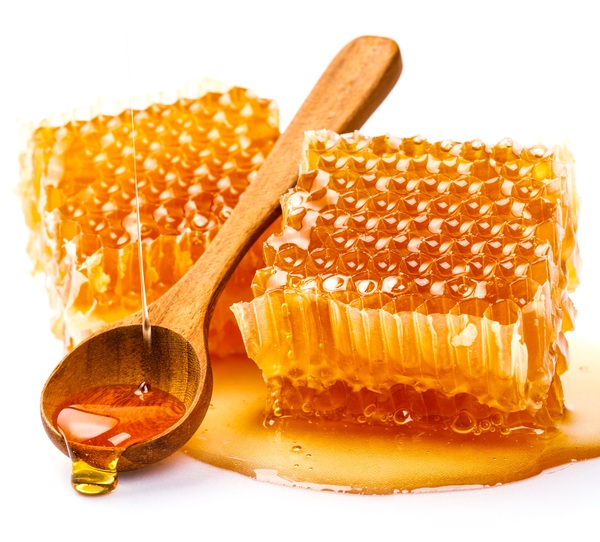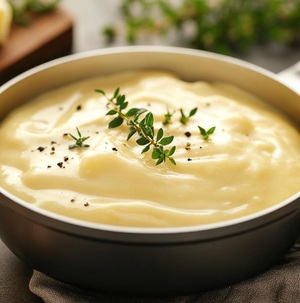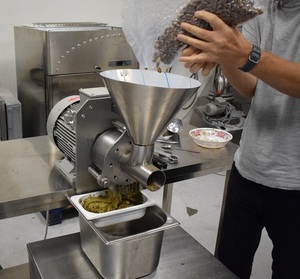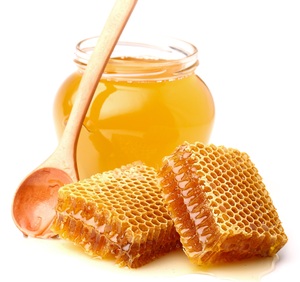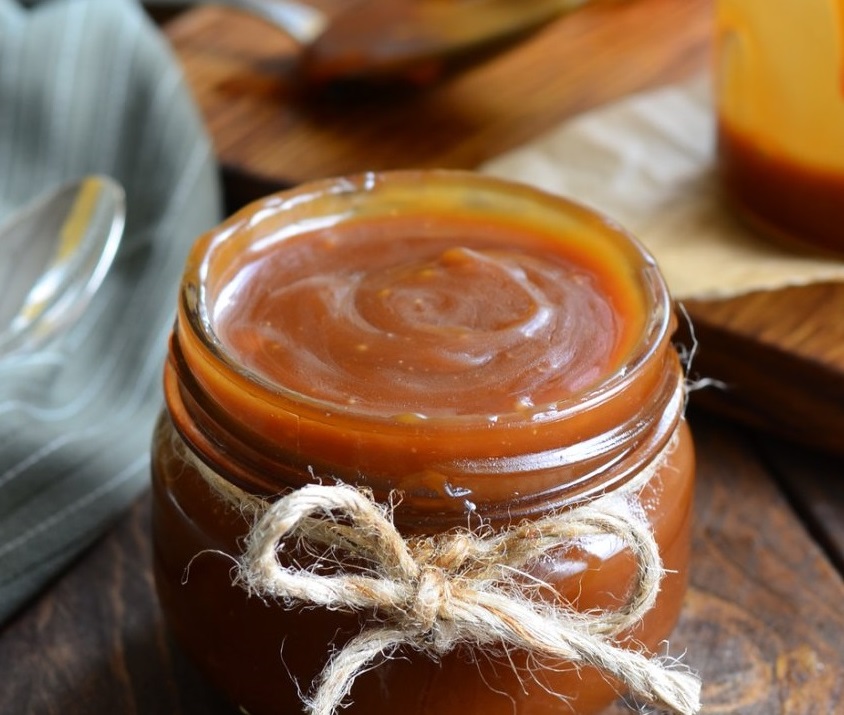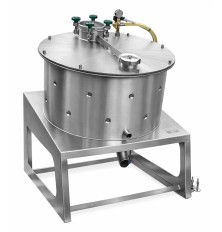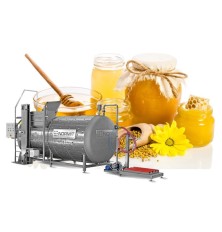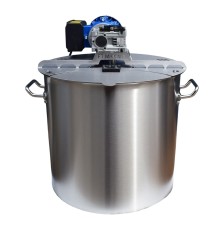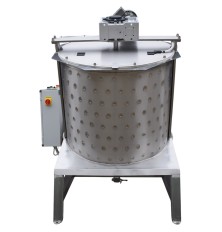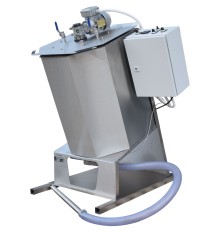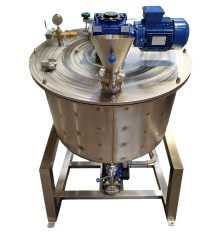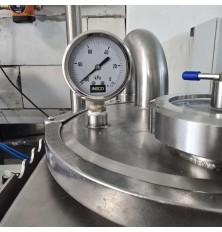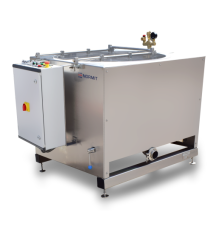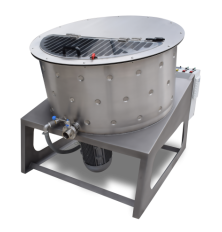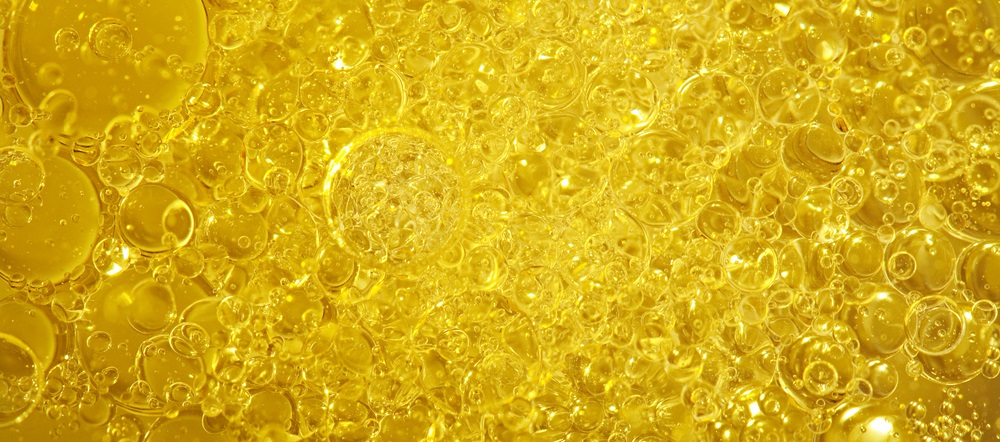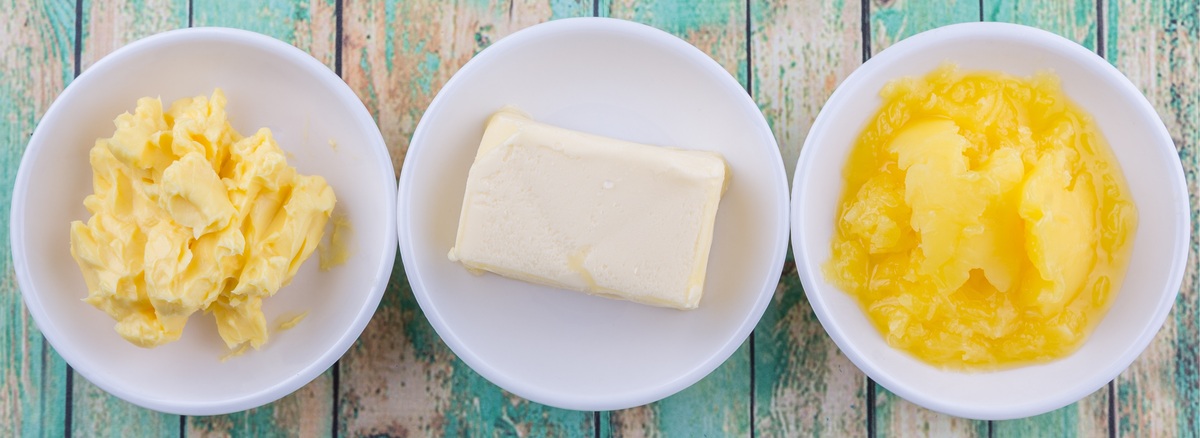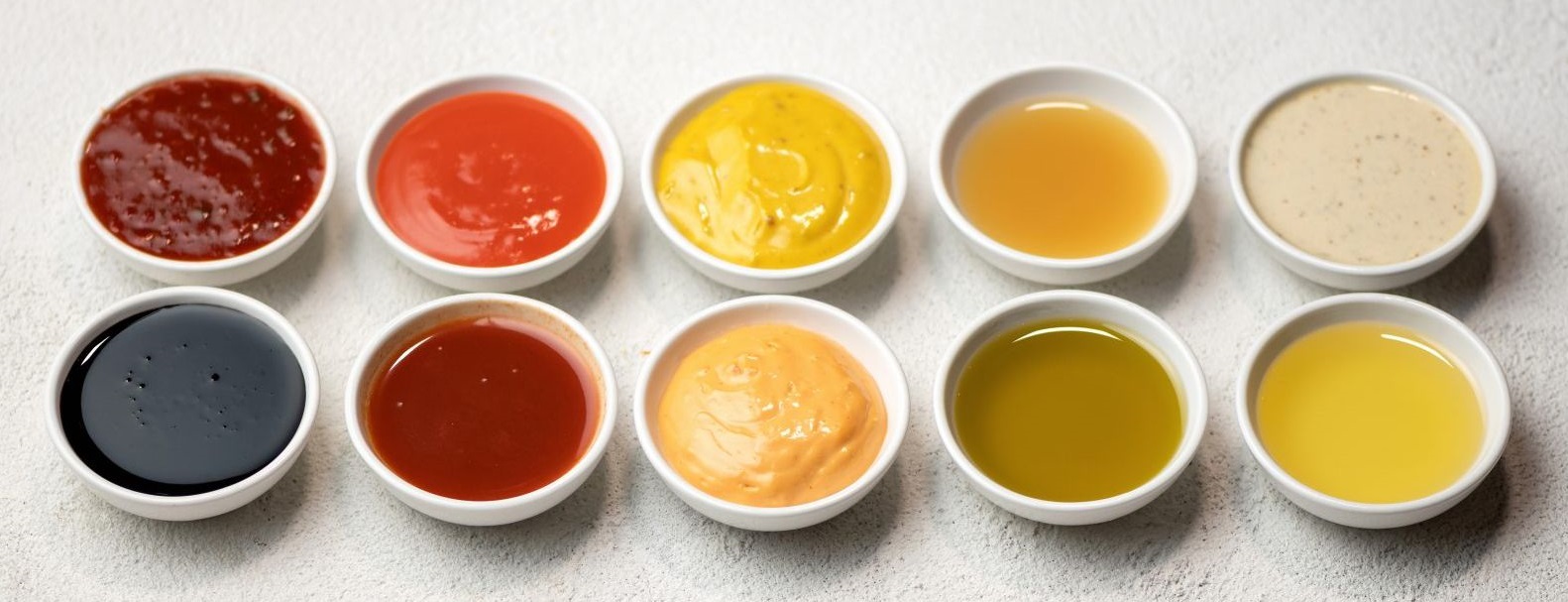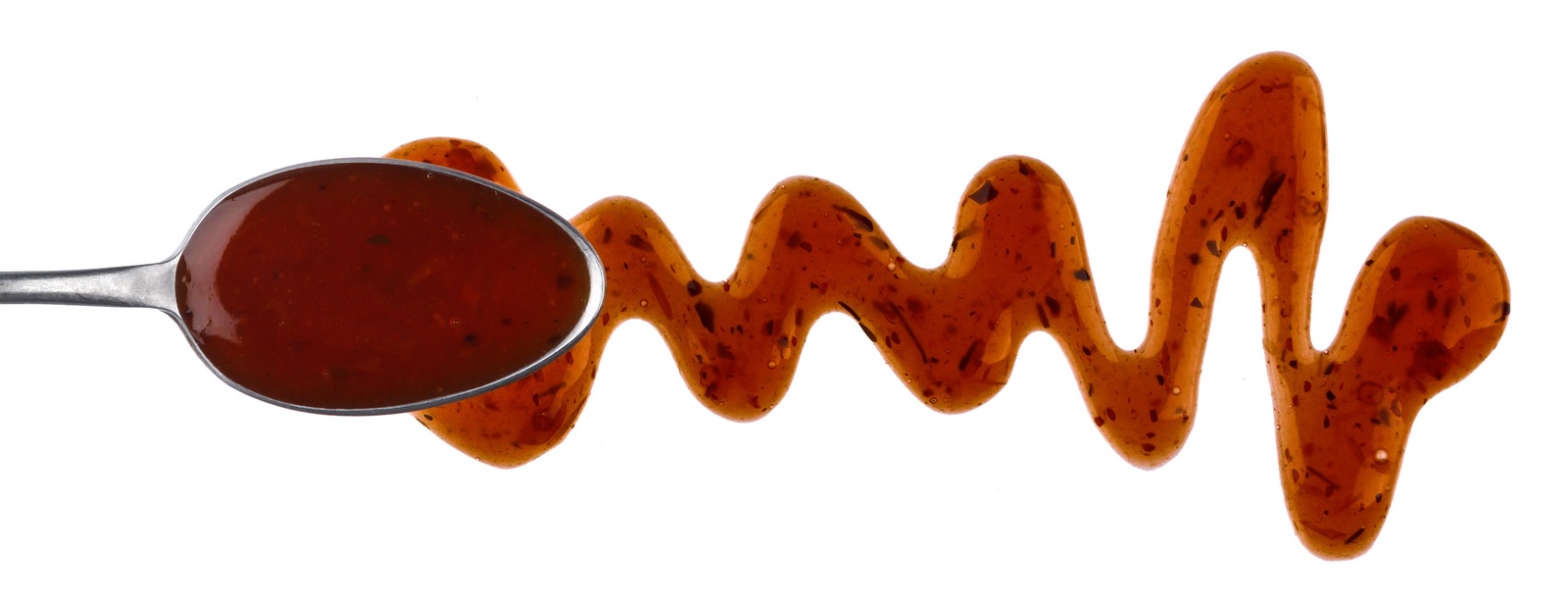CREAMING MACHINES
The objective is to produce a honey that has a smooth, firm, pomade-like consistency that can be accurately controlled and produced as a commercial product, and that will not undergo fermentation. The product is smooth and uniform, even when low-quality honey is used, it is characterized by uniformly distributed crystals of extremely fine size, which give it a pleasing pomade-like consistency but also improve its appearance and taste. The product is virtually stable under normal conditions and resistant to fermentation.
In the preliminary stages of the process, the honey is heated to a temperature sufficient to destroy the yeasts contained in the honey, thereby pasteurizing the honey.
This heating is a desirable preliminary step because in the final product, the crystallization of the honey is so complete, that it promotes fermentation if the yeasts are still present. This heating also liquefies or dissolves any crystals that may have already formed in the honey or that may have been present in the honey when it was removed from the comb. Honey heated in this manner usually slowly granulates into large granular crystals, making the honey undesirable for sale. It is therefore necessary to control this crystallization, as will be described below.
After the honey has been heated to destroy the yeast and dissolve the existing crystals, it should be cooled and filtered to remove insoluble crystals contained in the honey that may cause crystal growth in their pattern. Cooling should be done as quickly as possible to reduce the likelihood of the honey darkening due to the destruction of one or more components of sugars or other materials contained in the honey and to prevent the growth of HMF.
It is advisable to use a double heat exchanger in which the cavity containing the honey is surrounded by an outer shell. Heating can then be accomplished by forcing live steam into the outer jacket, provided that it partially serves as an insulator, and also provided that the honey is constantly stirred during heating. After heating as described, the honey is then rapidly cooled by circulating cold water in the outer jacket of the heat exchanger, at the same time constantly stirring the honey. The rate of cooling is greatly increased by stirring. The next steps are concerned with controlling the crystallization in order to obtain uniformly distributed extremely fine crystals which give the product its special fondant-like characteristics.
Accordingly, the next step after cooling is to add a portion (say about 5%) of honey which has been previously passed through my process for very fine crystallization. This portion of finely crystallized honey does not necessarily have to be large. It is possible to use different percentages of liquid and finely crystallized honey, from 1% to over 20%. From a scientific point of view, there is no definite upper limit to the proportion of finely crystallized honey which can be added to liquid honey to initiate its crystallization, since:
the same product will be obtained; but from a commercial point of view it is of course undesirable to use large proportions of crystallized starter, as this simply results in the same honey being processed over and over again with a relatively small net yield.
The more finely crystallized honey is used, the more rapidly will further crystal formation occur, due to the greater number of crystal-forming centers being incorporated into the liquid honey. - For practical purposes from 3% to 10% of the material added seems generally preferable, and a good working rule is to add about 5%, as already stated.
It is not necessary, however, to use such pre-processed honey, even though it is considered preferable. It is possible to use granulated honey in which the crystals have been very finely ground by passing them through a YUMIX, or by grinding the crystals in a YUMIX MILL. Since honey whose crystals have been ground and which has not been PASTEURIZED may contain living yeast cells, it is preferable to use honey which has gone through the whole process, as an insurance against later fermentation.
Although the addition of any material other than already crystallized honey is against the law in many countries, unless the added material has been properly declared on the package labels, it is possible to include air bubbles, and in some other cases, crystalline sugars.
A product of exceptional smoothness and high quality is obtained by adding powdered sugar. Usually honey containing a large number of air bubbles included in it is of undesirable quality, but a smooth granulated honey of good quality is obtained by processing liquid honey in a CUTTER MACHINE when crystallization has begun, so that many of the tiny air bubbles are incorporated.
When finely granulated honey is added to honey that is liquid, it is desirable that a thorough mixing of the two portions should take place, so that the minute crystals of dextrose hydrate may be thoroughly mixed in all portions of the liquid honey, ensuring that each portion of the crystal or fragment of the crystal may act as a separate focus for further crystallization. To obtain this desired condition, it is desirable to agitate the whole mass of honey after the addition of the finely granulated honey for about fifteen minutes.
As the air bubbles in the granulated honey may contain yeasts which may cause fermentation of the honey, and as the air bubbles tend to rise to the top of the honey when standing and form a scum or foam which is unacceptable, it is desirable to do the whole process under vacuum, or at least that the stirrer used to stir the granulated honey with the liquid be positioned in the tank so as to agitate the honey at the bottom and not too near the surface, and so not to suck in air bubbles from the top of the container. It is desirable to have a stirrer driven by a shaft passing through the bottom or side of the creamer, and to place it so that the paddles of the stirring mechanism are at least a few inches below the surface of the honey mass.
After the initial heating to kill the yeast, honey should be cooled rapidly to 23 degrees Celsius before adding the portion of fine honey. It is only necessary that the temperature be low enough that when the fine honey is added, the crystals in the added granulated honey should not liquefy. As the viscosity of honey increases rapidly with decreasing temperature, it is desirable to cool and bring the temperature of the honey down to about 23┬░C, because at about this temperature the consistency of the honey is such that thorough mixing of the liquid honey with the added granulated honey is easily accomplished. If the temperature of the liquid honey is too low, such mixing is much more difficult and may become almost impossible at low temperatures.
If the honey is of a thick consistency, adding a portion of finely granulated honey at slightly higher temperatures than is most suitable when honey types with a medium water content are used, and for thinner honey - a temperature slightly below 23 degrees Celsius is sometimes more favorable, it may become practically impossible at lower temperatures.
After the finely granulated honey or other material has been added to the liquid honey and is completely incorporated into the mass, the next step in the process is to cool the honey to such a temperature that further crystal formation will take place at the fastest possible rate. The rate of crystal formation is possible at a fairly constant temperature. For honey of medium consistency, a temperature of about 13 degrees Celsius typically allows for the most rapid crystal formation after the seed crystals also known as nuclei for crystal formation have been fully incorporated.
As the quality of honey improves when crystal formation is most rapid, it is desirable for all types of honey to have a certain temperature most suitable for crystal formation remain constant.
For honey types that are below average in consistency, a temperature just below 13 degrees will give the fastest crystal formation, while for thicker honey a slightly higher temperature, around 15┬░C, may provide extra speed to the process. However, for all types of honey, the best results are obtained when the temperature is kept as constant as possible!
It seems advisable to state the crystal formation time that has given us the best results. We have found that when the correct temperature is reached for a given honey, it is possible to bring the honey from a completely liquid state to a state where the honey appears solid in a period of only 34 hours. However, when working with exactly the same honey, a deviation of just two degrees can prolong the process and double the time.
As rapidity of crystal formation is desirable, not only from the point of view of the maximal possible use of the equipment, but especially from the point of view of the size of the crystals and the quality of the honey processed, we consider it desirable always to have a temperature which will produce crystals of apparently hard honey in no more than 3-4 hours, and the longer this process takes the larger the crystals and the coarser and less desirable the honey becomes.
To obtain the smooth grain and fondant consistency characteristic of the product, it is important to add very fine crystals to form nuclei for further crystal formation, to disperse them carefully throughout the liquid honey, and to control the temperature as necessary. If ordinary granulated honey is simply added to liquid honey, as has sometimes been done in the past to speed up granulation, the result may be a relatively large grain of ordinary granulated honey, and the honey will lack the consistency, smoothness, and flavor characteristic of this new product. The difference is particularly noticeable where low-grade honeys are used, therefore this process, by increasing their flavor, opens up a wider market for low-grade honey types.
Once the honey has been granulated by the process described above, it can be removed from the environment with constant temperature to which it has been subjected, and can then be stored at any ordinary temperature without liquefying. If the honey was too liquid before processing, there will be a tendency to liquefy if the temperature at which it is stored is somewhat higher than is usual in rooms suitable for human habitation, and on the other hand, if the honey was thick enough, it may remain quite solid when stored in a room with a temperature of up to 26 degrees.
As for the consistency of honey, to achieve the best creaming results, honey with a specific gravity of no less than 1.42 is best suited. On the other hand, if the honey has too high of a specific gravity, such as 1.44, the formation of crystals at a constant temperature may be slowed down with a consequent deterioration in the quality of the final product, the heavier honey types may also become so hard that they are less desirable for the usual purposes for which crystalline honey can be used.
If the creamed honey is to be sold in a container of some kind, such as a tin can, it is advisable to place it in the container immediately after adding finely crystallized honey and after thoroughly mixing this honey in liquid honey. If this is done, further crystal formation will take place in the commercial container and there will be less of a chance of air getting in. It is better to pour the honey into jars or bottles immediately after mixing and then put the containers in a room with a constant temperature.
1. A fine-grained pomade-like honey product obtained by introducing finely crystalline honey powder or other sugar into liquid honey at a temperature below the melting point of the said nuclei, stirring the honey to thoroughly distribute the said nuclei, and maintaining the temperature during granulation of the honey within a few degrees.
2. A honey product obtained by heating honey to a temperature sufficient to kill yeast, cooling it rapidly to a temperature below the melting point of honey crystals, introducing artificially prepared fine-grained crystalline nuclei, stirring the honey to distribute the said nuclei evenly throughout the mass of the honey, and regulating the temperature within 1 to 2 degrees, thereby forming a fine-grained pomade-like honey product.
3. A honey product obtained by heating honey to a temperature sufficient to kill yeast, rapidly cooling it to a temperature below the melting point of honey crystals, introducing artificially prepared fine-grained crystalline nuclei, stirring the honey to the desired specific gravity as it moves through itself, driving miniature air bubbles into the honey when it is partially crystallized, and controlling the temperature within a few degrees, thereby forming a fine-grained pomade-like honey product.
4. A honey product obtained by heating honey to a temperature sufficient to kill yeast, rapidly cooling it to a temperature below the melting point of honey crystals, adding about 5% fine-grained honey or other fine-grained sugar crystals to form the crystallization nuclei, stirring the honey to distribute said nuclei evenly throughout the honey, keeping the temperature within a few degrees, thereby forming a fine-grained pomade-like product.
5. A process for producing a fine-grained honey product which consists of heating honey to a temperature sufficient to destroy yeast, cooling it rapidly down to a temperature below the melting point of honey crystals, adding 5% fine-grained crystalline honey or other fine-grained sugar crystals to form the crystallization nuclei, stirring the honey to distribute said nuclei evenly throughout the honey, and regulating the temperature within a few degrees during the period in which the crystals are formed.
6. A process for producing a fine-grained honey product which consists of heating honey to a temperature sufficient to destroy yeast, cooling it rapidly to a temperature below the melting point of honey crystals, adding 5% fine-grained crystalline honey or other fine-grained sugar crystals to form crystallization nuclei, stirring the honey to distribute said nuclei evenly throughout the honey, whisking miniature air bubbles into the honey when it is partially crystallized, and regulating the temperature within a few degrees during the period of crystal formation.
7. A method of processing honey which consists of heating honey to a temperature sufficient to destroy yeast, reducing its temperature, adding about 5% granulated honey as a starter into the cooled honey, stirring the honey to thoroughly mix it, then subjecting the honey mixture to a temperature of about 13 degrees for several hours under vacuum.
8. A honey product obtained by heating honey to a temperature sufficient to destroy yeast, rapidly cooling it to a temperature below the melting point of honey crystals, adding from one to about 20% of finely crystalline honey or other finely granulated sugar crystals to form the crystallization nuclei, stirring the honey to evenly distribute said nuclei throughout the honey, and controlling the temperature within a few degrees, thereby forming a finely granulated pomade-like product.
9. A process for producing a fine-grained honey product which comprises heating honey to a temperature sufficient to kill yeast, rapidly cooling it to a temperature below the melting point of honey crystals, adding from one to about 20% of fine-grained crystalline honey or other fine-grained sugar crystals to form crystallization nuclei, stirring the honey to evenly distribute said nuclei and controlling the temperature to about 10 degrees, adding from one to about 20% of fine-grained crystalline honey or other fine-grained sugar crystals to form the crystallization nuclei, stirring the honey to evenly distribute said nuclei throughout the honey, beating miniature air bubbles into the honey when it is partially crystallized, and controlling the temperature within a few degrees during the period of crystal formation.
Equipment for the production of creamed honey, souffl├® honey, whipped creamy honey. The machine is produced both in atmospheric and vacuum versions, the loading capacity ranges from 70 to 3500 kg of honey.
- Material: Stainless steel
- Principle of operation: Batch mode
- Country of origin: Slovakia
We offer equipment for processes such as: honey dissolution, honey drying, honey homogenization, honey pasteurization, honey creaming and honey packaging. The necessary equipment is selected by the customer based on the required processing technology for their manufacturing process.
- Material: Stainless steel
- Type of the equipment: Part of a production line
- Country of origin: Slovakia
The honey creaming machine is produced in various capacities with the possibility of loading from 30 to 225 kg of honey, so every beekeeper can choose the model that suits him. After processing, honey acquires a creamy structure. The creaming process is a method of crystallizing honey using a sample ŌĆō seed (creamed honey), carried out through stirring.
- Compact design
- Easy to operate and maintain
- Connection - 220-230 Volts
- Container and mixing device made out of stainless steel
- Material: Stainless steel
- Engine power, kW: 0,18/ 0,25
- Voltage: 220-230V
- Loading, kg: 30/ 75/ 150/ 225
- Diameter, mm: 400/ 500/ 600
The atmospheric unit for whipping and creaming honey, featuring a new design with gravity mixing, represents the second generation of the successful CH Light creaming unit model. Gravity mixing honey is 40% more effective than traditional methods, particularly in the production of cream honey, where the mixing mode and cyclogram play crucial roles. The slanted design aids in quickly emptying the work tank with minimal product loss.
- Sloped design - 40% more efficient mixing
- Powerful agitator drive
- Collapsible frame mixer with movable scrapers made out of fluoroplastic
- Lid opening sensor - a guarantee of high safety for the operator
- Material: Stainless steel
- Principle of operation: Batch mode
- Country of origin: Slovakia
- Volume: 400l/600 kg
- Total power, kW: 1,5
- Voltage: 380-400V
A vacuum honey dryer is used to dehydrate (remove moisture from) honey at sub-atmospheric pressure.
- This highly efficient and innovative vacuum drying process guarantees honey drying rates exceeding 1% per hour!
- The vacuum dryer allows for quick and gentle drying of honey at temperatures up to 39┬░C without increasing hydroxymethylfurfural (HMF) levels.
- Any heat source (hot water, steam) can be used to supply thermal energy to the dryer's jacket.
- The specially designed mixing device enhances heat transfer within the product, improving its thermal efficiency and significantly reducing drying energy costs.
- Material: Stainless steel
- Principle of operation: Batch mode
- Country of origin: Slovakia
- Max vacuum: -0,8 Bar
The vacuum crystallizer-cooler is specifically designed for sweetened condensed milk. Crystallization with cooling is one of the most important stages in the production of condensed milk according to GOST and is necessary before dosing and packing the finished product.
- After crystallization, condensed milk has a delicate structure with small crystals
- Condensed milk has a homogeneous shape and attractive consumer properties
- The shelf life of condensed milk is extended without changing the quality of the product
- Material: Stainless steel
- Principle of operation: Batch mode
- Country of origin: Slovakia
- Volume: 100l/ 300l
- Voltage: 380-400V
- Max vacuum: -0,8 Bar
Multifunctional vacuum unit MINI5 - is ideal for cooking, drying, concentrating, mixing and much more. Suitable for laboratories and small-scale production.
- Processing heat-sensitive products at lower temperatures
- Ideal for making creamed honey
- Possibility of vacuum drying honey
- Material: Stainless steel
- Engine power, kW: 0,12
- Country of origin: Slovakia
- Volume: 5l
Our company offers equipment for whisking honey with a new updated design with gravity mixing! A characteristic feature of the new series, which is 20-25% more efficient than conventional mixing! The inclined design also makes it easier to unload the product after processing, due to the centrifugal force and gravity!
- Material: Stainless steel
- Principle of operation: Batch mode
- Country of origin: Slovakia
Our company offers equipment for whipping honey with a new design which includes gravity mixing. The main advantage of the technique is the ability to produce creamy honey in 4 hours! The device is designed for 450 kg of honey per batch.
- Material: Stainless steel
- Country of origin: Slovakia
- Volume: 300l












